|
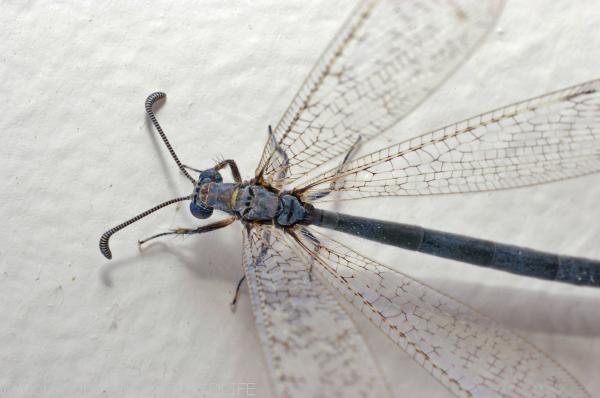
some antlion lacewings look a bit like dragonflies, but dragonflies do not have antenna like this.
Photograph copyright: ozwildlife - all rights reserved. Used with permission.
|
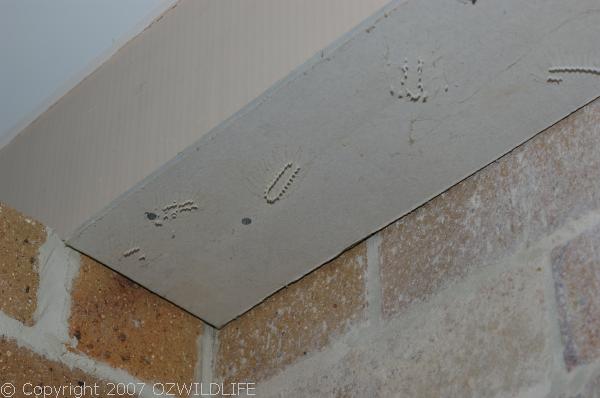
Eggs are laid on stalks, often under eaves, under outdoor furniture or other sheltered places.
Photograph copyright: ozwildlife - all rights reserved. Used with permission.
|
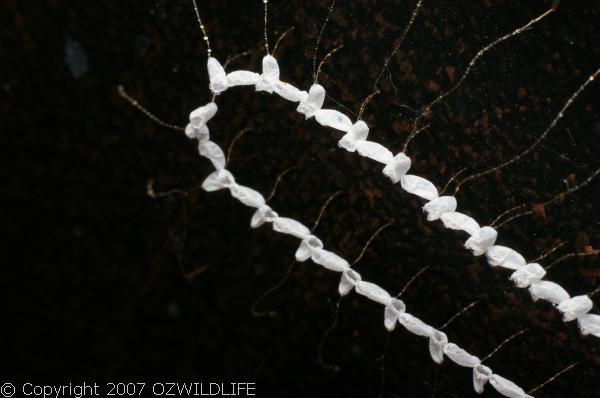
The eggs have hatched
Photograph copyright: ozwildlife - all rights reserved. Used with permission.
|
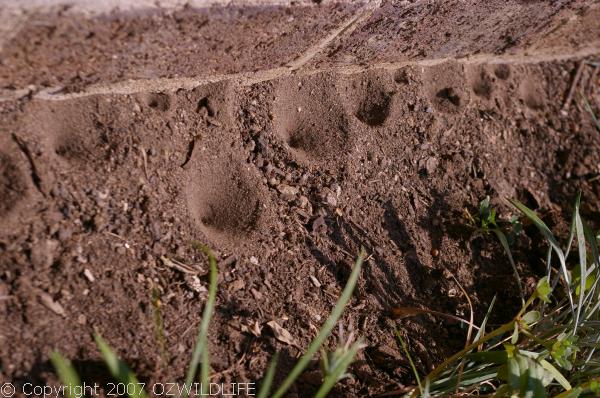
The larvae are called ant lions. Some species of ant lions live in the ground making conical pits in soft sandy soil to trap insects. The ant lion buries itself just under the sand at the bottom of the pit.
Photograph copyright: ozwildlife - all rights reserved. Used with permission.
|
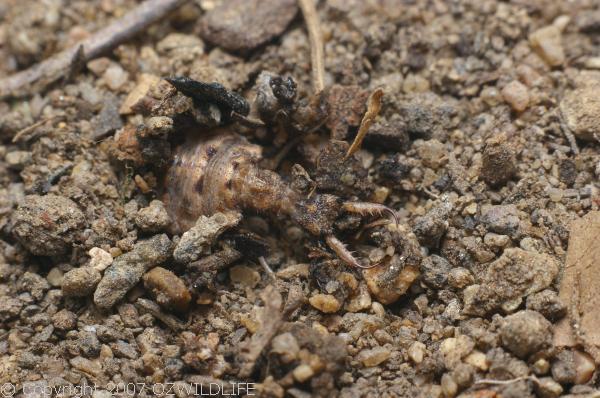
The antlion has long mandibles for grabbing any insect that falls into the trap.
Photograph copyright: ozwildlife - all rights reserved. Used with permission.
|
|
|
ANTLION FACTS |
Identification
Antlions are a family of lacewings with short antennae that thicken towards the tips. They have two pairs of long thin transparent wings that are held along the body.
Other Names
Lacewings
Size
25mm
Food
larvae feed on insects
Breeding
The eggs are laid in groups with each egg on a short stalk, and each stalk linked together in horse-shoe pattern. The larvae are called antlions (or ant-lions) and are carnivorous. Some live in the ground making conical pit traps to catch ants and other small passing insects.
Classification
| Class: | Insecta | | Order: | Neuroptera | | Family: | Myrmeleontidae | | Genus: | Myrmeleontidae family | | Species: | | | Common Name: | Antlion |
|
|

